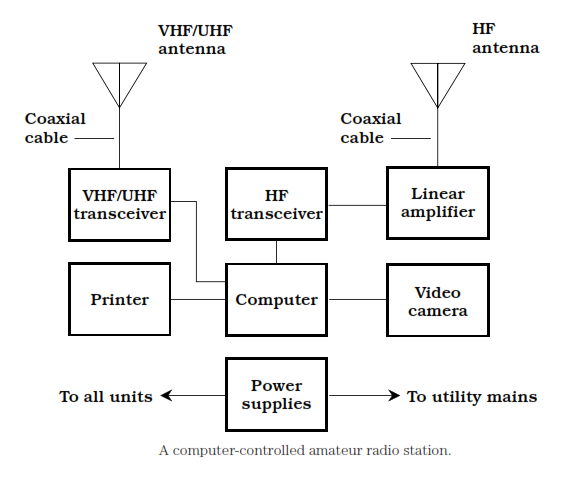Hobby radio
In most of the countries of world, people can obtain government issued licenses to send and receive messages by radio for nonprofessional purposes. In America, this hobby is called as amateur radio or ham radio. If you want to listen to communications and broadcasting, and not to transmit signals, you do not require a license in United States.
Who uses amateur radio?
Anyone can use ham radio. Amateur radio operators, often called radio hams, can communicate by using any of numerous modes, including speech, Morse code, television, and radioteletype (RTTY). This last mode, RTTY, can be done in real time, or by posting messages in a way similar to the way computer users exchange information by the electronic mail. Radio hams have set up their own radio networks. Some of these networks are having Internet gateways. This is called as packet radio.
Some radio hams chat anything they can think of (except business matters, which are illegal to discuss). Others like to practice emergency communications skills, so they can be of public service during the crises such as hurricanes, earth quakes, or floods. Still others like to go out into wilderness and talk to people thousands of miles away while sitting out under stars. Amateur radio operators communicate from boats, cars, aircraft, and bicycles; this is called as mobile operation. When transceivers are used while hiking or walking, it is known as portable or hand held operation.
Amateur equipment and licensing
A simple ham radio station has a transceiver, a microphone, and an antenna. A small station can fit on the desktop and is about size of a home computer or hi-fi stereo system. Accessories are added until a ham rig is a large installation, comparable to the small commercial broadcast station.Figure given below shows an example of a fixed, computer controlled amateur radio station. The PC can be used to communicate by means of packet radio with other hams who own

computers. The stations are equipped for on-line telephone services. The PC can control antennas for station and can keep a log of all stations which have been contacted. Some transceivers are operated by computer, either locally or by remote control over radio or landline.